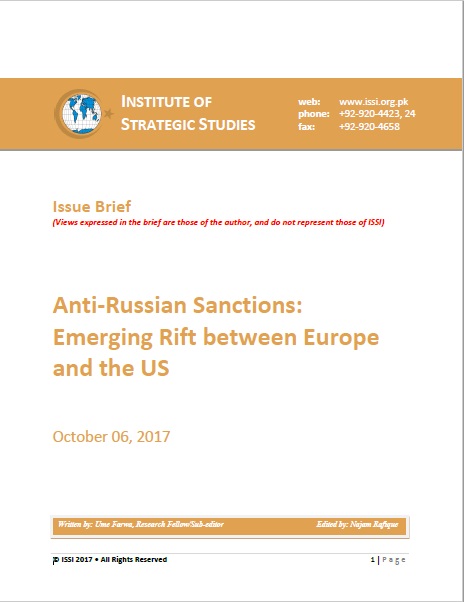Russia is a key player in the Eurasian continent due to its enormous potential in petroleum industry: it is one of the largest oil exporter and natural oil producers in the world. The instrumental US partner, the European Union (EU) is highly dependent on Russian oil and gas. While trying to manage its relations with the old rivals, the EU often gets into a fix whenever it is caught between the desire to appease the US by complying to anti-Russian-sanctions, and the need to please its industrialist by capitalizing on cheap oil and gas from Moscow. At present, such a moment is upon the EU.
In August 2017, the American House of Representative and Senate approved the anti-Russian sanctions bill with an overwhelming majority for imposing punitive measures on a range of Russian interests and businesses for its alleged interference in the elections and invasion of Crimea.[1]The bill is a continuation of the EU and US sanctions on Russia after it invaded Crimea in 2014. The new sanctions can stagnate Russian economy in the long-run since it limits foreign investment and aims at isolating the Kremlin from the international capital market. Consequently, these developments will reduce Russian gross domestic product (GDP). Russian energy export will also be crippled, especially of natural gas, as it bans all the companies involved in Russian gas pipeline project Nord Stream 2.















